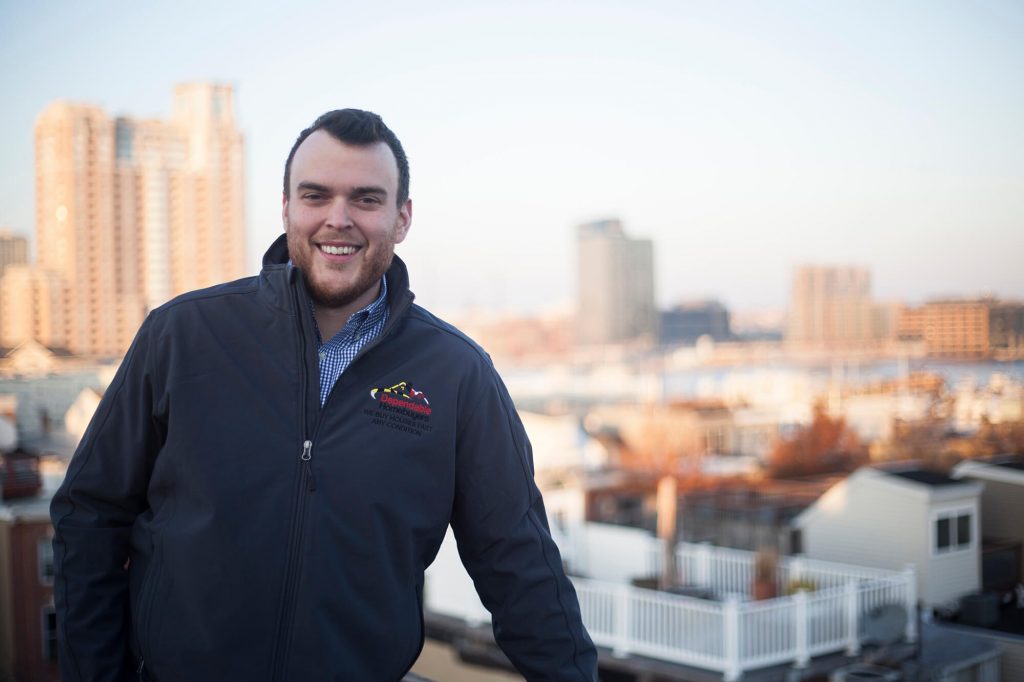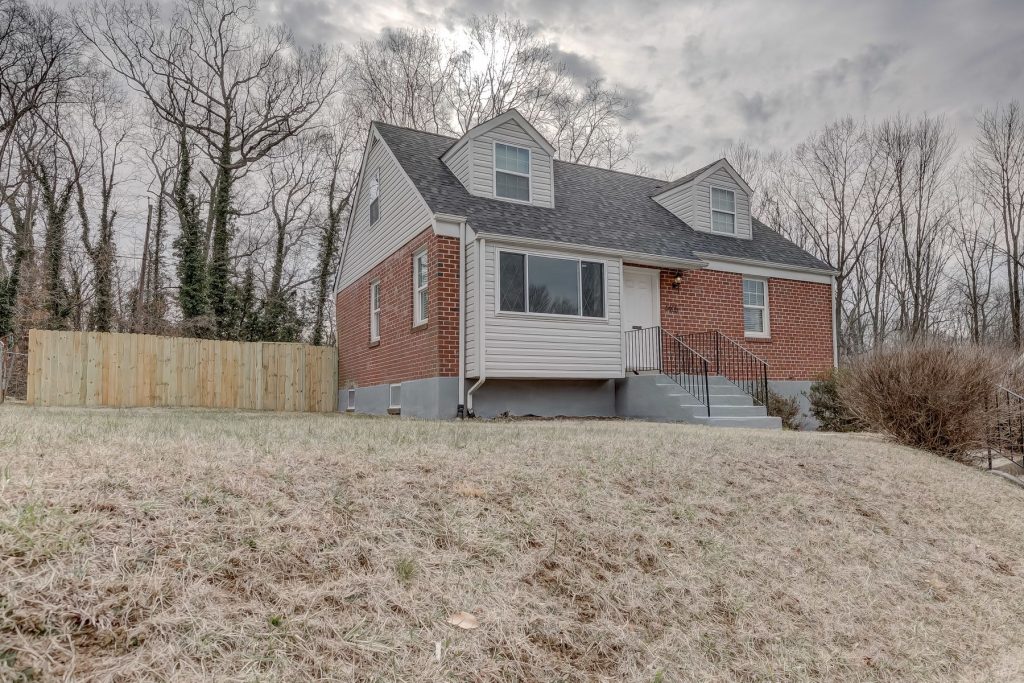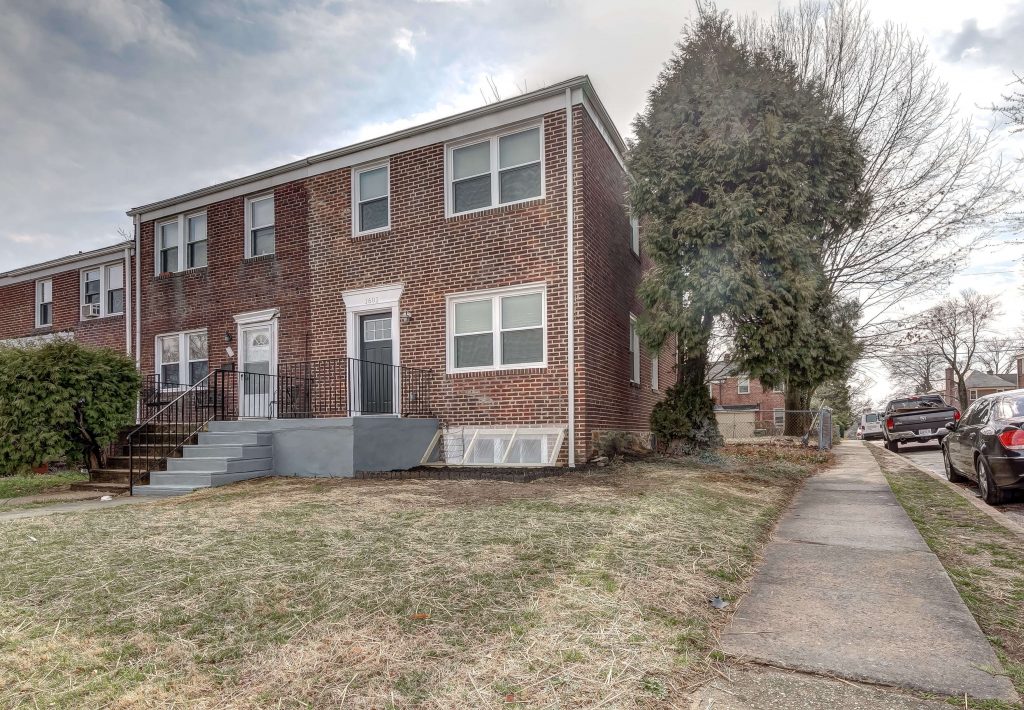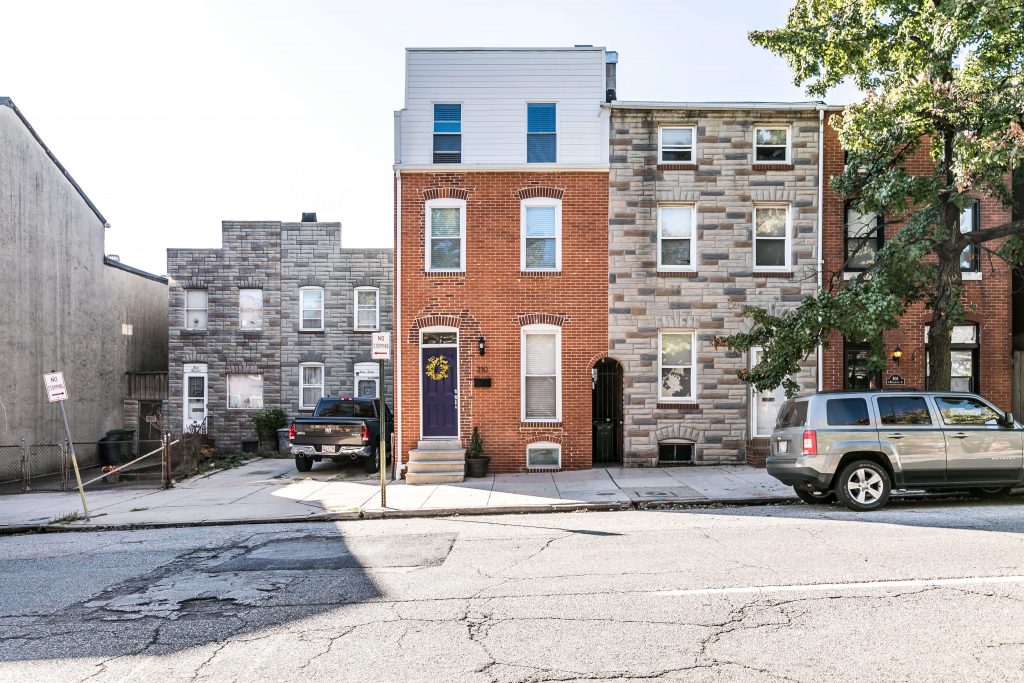Get rich with real estate - I reached financial independence in two years with rentals
How can you get rich with real estate? It's more than luck. This guy reached financial independence in two years by flipping properties.

How quickly can a person build wealth without a six-figure salary reach financial freedom in real estate? 5 years? 10 years? 30 years? Evan Roberts reached it in two.
I’ve never met Evan in person, but by sheer coincidence, he grew up in the same working-class suburb of Baltimore that I did. Even stranger, he spent most of his adult life living in the same gritty-chic downtown neighborhood that I did.
But what we really share is our passion for passive income from investment properties. Here’s Evan’s story, no punches pulled, about how exactly he grew his net worth and reached financial independence in just two years.
[Note from Steve: I am not a real estate investor, but I love success stories. This story focused on wealth building through highly successful real estate investing was so impressive that I couldn't help but hit Publish.]
Where Evan Started

Evan Roberts attended a local public college, UMBC. He met a girl named Michelle, fell in love, moved in together, rescued a pit bull named Mia from a shelter.
He started out his career at Morgan Stanley, but after several years he decided the financial industry wasn’t for him.
He stuck with sales though and moved into commercial concrete sales. Which hummed along for a little while, but it was far from a calling. “It was while I was doing sales for commercial concrete when I decided to commit serious effort towards making money by acquiring rental properties”, he said.
Evan didn’t start with a high income salary or bankroll. What he had was a vision, that included passive income from a portfolio of tangible income-producing assets.
After devouring as much education as he could on real estate investing, it was time to roll up his sleeves and find his first investment property.
[Note from Steve: As many people would agree, the determination to start from nothing is nothing short of amazing.]
Access the investment strategies of the wealthy and protect yourself from market volatility!Evan’s First Real Estate Deal
“While short-sales are not as common in today's market, they were a great way to get started with your first estate investment.”
In January 2016, Evan bought his first investment property.
“We paid $40,000, put in $50,000 in repairs, and refinanced at $145,000. We walked away with cash in our pockets, with a renter paying $1,735 a month!”
Let’s rewind for a second there – that moved awfully quickly. How did he possibly make money in such a short period of time?
Where did Evan get the money to begin buying rental properties in the first place?
“We borrow private money from close friends and family at 10% interest for acquisition and renovation, and then refinance using commercial loans at 6% amortized over 25 years,” Evan explained.
How much cash flow is good for a rental property?
If you were to tally up all of Evan’s out-of-pocket costs, the magic number seems to land around $90,000 in total. However, keep in mind that real estate evaluations vary from market to market. I would imagine a single family home in Manhattan would cost a lot more than the equivalent sized single family home in Detroit.
Worried you couldn’t raise $90,000 from your friends and family? Don’t fret. Hard money lenders and online fix-and-flip lenders will cover 80-90% of your purchase and renovation costs. You’ll probably pay slightly more than Evan did, though, if you finance your acquisitions this way.
Expect to pay 8-14% interest and 1-5 points in lender fees at closing. (It’s the points and junk fees that really hurt you, not the interest). Paying a 14% interest rate for six months doesn’t end up costing much more than paying a 7% interest rate, given how short the loan term is. Look for lenders who won’t kill you on points and fees.
Scaling

What came next for Evan? How did he grow his portfolio? You might even ask:
Are rental properties a good investment?
The answer is yes, but you’ll see with Evan, you must employ a bit of strategy into making the right rental property investment.
According to Evan, “The trick was to always purchase the investment property for no more than 70% of its market value and to invest in low-price rental neighborhoods.
“By purchasing a single family home at a discount, we were able to find renters and then perform a cash-out refinance that would allow us to continue cycling our money through new projects. By focusing on renter-heavy neighborhoods we were able to maintain positive cash flow after the refinance and add to the monthly rental income we needed to cover our living expenses.”
The strategy is simple: Buy real estate with your own cash and supplement it with privately-borrowed funds. Renovate it, rent it out, and refinance it to pull that original cash back out. Plus there are some tax benefits you can gain in refinancing estate investment smartly as there are a ton of deductible costs, i.e mortgage interest, points and property taxes paid at closing.
“We acquired six additional rental properties using this renovation refinancing method. These were bought through short-sales, onsite auctions, online auctions, and direct mail. These were in Baltimore City, Baltimore County, and Anne Arundel County.”
In addition to building wealth through rental income, Evan brought in extra money by getting his Realtor’s license and bought some properties specifically to flip for extra cash along the way, also process known as forced appreciation.
“In addition to the six rental acquisitions, we also flipped five properties and wholesaled three during this time.”
For the non-real estate nerds among you, wholesaling a property means flipping a contract without actually buying the property yourself. You find a good deal, put it under contract, then sell the contract to another investor for a margin. It’s a great way to get started in real estate investing if you don’t have much (or any) cash.
[Note from Steve: At this point, I've learned WAY more about real estate investing than I ever had before. Really creative techniques that I had no idea about.]
The Big Kahuna: 11-Property Portfolio Deal

The beauty of scaling and experience is that the more deals you do, the more people you meet, and the more opportunities come your way.
In Evan’s case, these relationships created opportunity in two forms: meeting an older landlord looking to divest, and the trust he had developed with his commercial lender.
“The deal that put us into financial independence was a portfolio of 11 units we purchased from an older landlord. The banking relationship we’d built allowed us to finance 100% of the purchase while still allowing for cash flow on each property.
“The trick for us was to start small with single-family homes and once a relationship is built, start going after larger deals.”
Evan’s referring to the commercial lender he’d been working with who finances his deals at 75% of their value. In this case, they agreed to base the loan on the appraised values of the homes, rather than the portfolio purchase price. Thus, 100% financing.
And the details for this portfolio? Price? Performance? Cash flow?
“We are acquiring the 11 rentals for $800,000, fully financed. The portfolio generates $10,900 in gross rents monthly. We expect to increase the gross monthly rents by $3,000 over the next five years by increasing under market rent prices. We predict to have $4,900 in monthly expenses (property taxes, insurance, maintenance, property management, vacancies) and $5,150 in debt service. This will leave us with $850 in monthly cash flow at the time of acquisition.”
Growing Pains: What Hasn’t Gone According to Plan?
As a landlord in Baltimore myself, I asked Evan about his experiences with tenants.
“We've been very successful with the tenants we've placed, but we've had issues with some tenants we've inherited. The most difficult was dealing with squatters from a recently purchased home. This is common in Baltimore City and we had to go through a formal eviction process to have them removed from the home.”
What else hasn’t gone according to plan?
“Our first flip was a disaster. It was a historic home and we managed it poorly. We hired the wrong general contractor who stole thousands of dollars in HVAC equipment from our job site and we were slow to replace him after firing him. We went over-schedule and over-budget and ended up losing $20,000 on the project.
“What we learned is that you never hire the cheapest contractors; they always cost you more money in the long run.”
One tip we teach our own real estate investing students, beyond the usual screening and vetting of contractors, is to start new contractors on smaller projects first. Gradually scale them up to larger projects, because you’re entrusting them not only with the cash you’re paying them but with an asset worth hundreds of thousands of dollars.
Evan’s Advice for New Real Estate Investors
When I asked Evan about his best advice for people thinking about trying their hand at rentals in an effort to grow their net worth, he didn’t hesitate.
“Create a spreadsheet that accounts for 30% of monthly rents for vacancies, maintenance, and management.
“Always stick to the numbers when determining whether to pull the trigger on a property. If it doesn't look good on paper, walk away. Profits in real estate are made when you acquire the property and there's little you can do to make a bad deal a good deal.”
That’s an important point worth expanding on: you can’t count on future appreciation for your returns.
Sure, a property you buy and hold for five years might double in value… or it might not budge at all. As a rental investor, the deal needs to make sense based on cash flow. Not potential cash flow “if rents keep rising at today’s pace,” but cash flow based on today’s market rents.
Evan continues: “Land appreciates but homes depreciate. Just because a property’s rent can cover the mortgage doesn't make it a profitable rental property. Always make sure you account for overhead (management, maintenance, and vacancies).”
The 50% Rule

It's an important point: cash flow is not “rent minus mortgage.”
We repeatedly stress that message to our own rental investing students: budget for irregular but significant expenses. This year it may be the furnace. Next year it will be a vacancy. The year after that it will be the roof.
A quick shorthand for new investors is the “50% Rule.”
Landlords can expect to lose about half of the rent to expenses, not including the mortgage.
By way of illustration, if the rent is $1,000/month, and the mortgage (principal and interest) is $400, then the landlord can expect around $500 in additional expenses. In that example, they can expect around $100/month in cash flow.
Evan pointed out maintenance, property management costs, and vacancy rate.
Other expenses include insurance, taxes, legal costs, mileage, administrative costs, bookkeeping, and accounting.
It’s worth noting that investors should include property management as an expense, even if they plan to manage the properties themselves. Property management is a labor expense, regardless of who’s performing the labor.
Otherwise, how could you compare your returns on a rental property with a truly passive investment, such as a mutual fund or ETF?
Financial Independence & The Road Ahead
What comes after you reach financial independence?
Do you ride off into the sunset? Go live on a beach somewhere sipping margaritas for the rest of your days? Not Evan.
“While we're financially free, we're working to expand our wealth through new acquisitions.”
He’s chosen not to retire yet because he enjoys expanding his rental portfolio through his company Dependable Homebuyers. To depend less on borrowed funds, he continues his related work in the real estate industry.
“We also generate cash by representing individuals as real estate agents, and we sometimes manage bathroom renovation projects.”
In fact, instead of borrowing funds from others for his deals, he’s now the one doing the lending:
“We also invest in notes but to a lesser extent. We'll often lend to other investors to fund their deals and then we list their property as listing agents once the renovation is complete.”
Not a bad business model, eh? Fund the deal, maybe oversee the renovation, then list the property and earn the sales commission on top of your note return.
Never Going Back to 9-5

“Being financially free to me is knowing that I'll never have to worry about going back to a 9-5 job.
I will continue growing the rental portfolio because it's something that I love to do.” It’s a beautiful place to reach when your passion also makes you rich. What does it take to reach financial independence in two years?
Can you get rich with a rental property?
The answer is most likely, yes, but as we saw with Evan, you must put in a bit of effort to ensure the utmost success. As Evan demonstrated, through hard work, thorough risk calculation, strategic networking and relationship building, and money borrowing, becoming rich through real estate is possible.
Most of all, Evan had his own vision, and he went out and executed it. So before you go out and attempt to accomplish this incredible feat, make sure you have clear direction and motivation.
That’s what it takes to reach FI in two years.
What’s your plan for reaching financial independence? Do you own rental properties, or plan to invest in them, as part of your FI strategy? If so, how have they performed for you? What’s your biggest concern holding you back, if not?